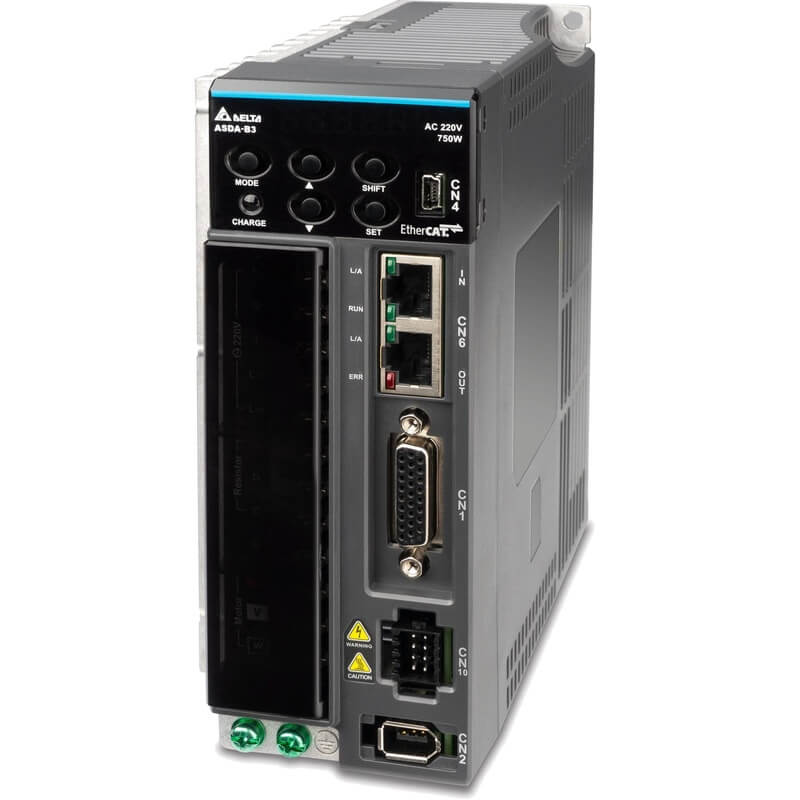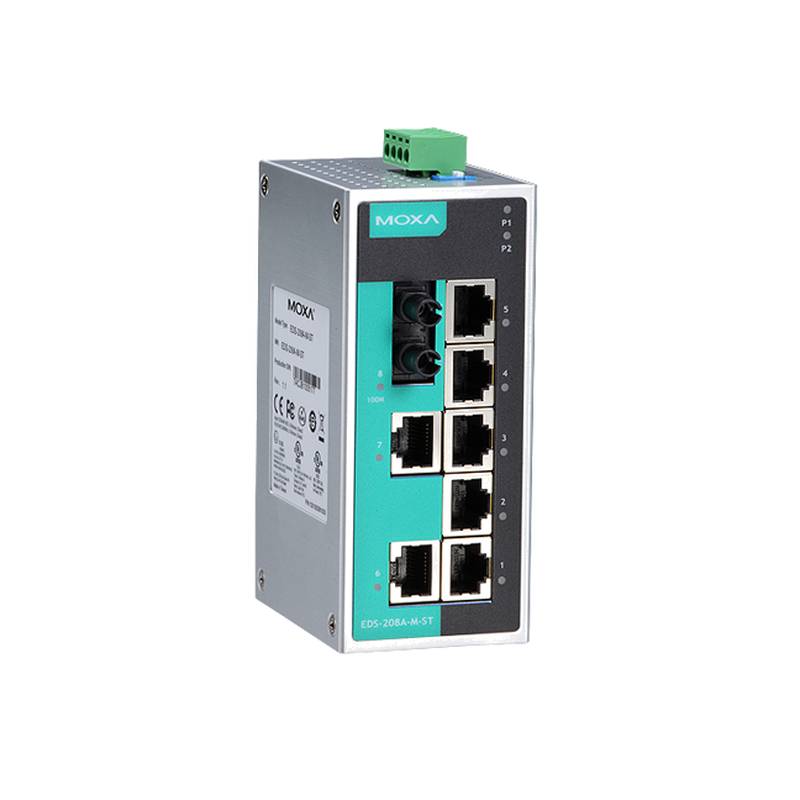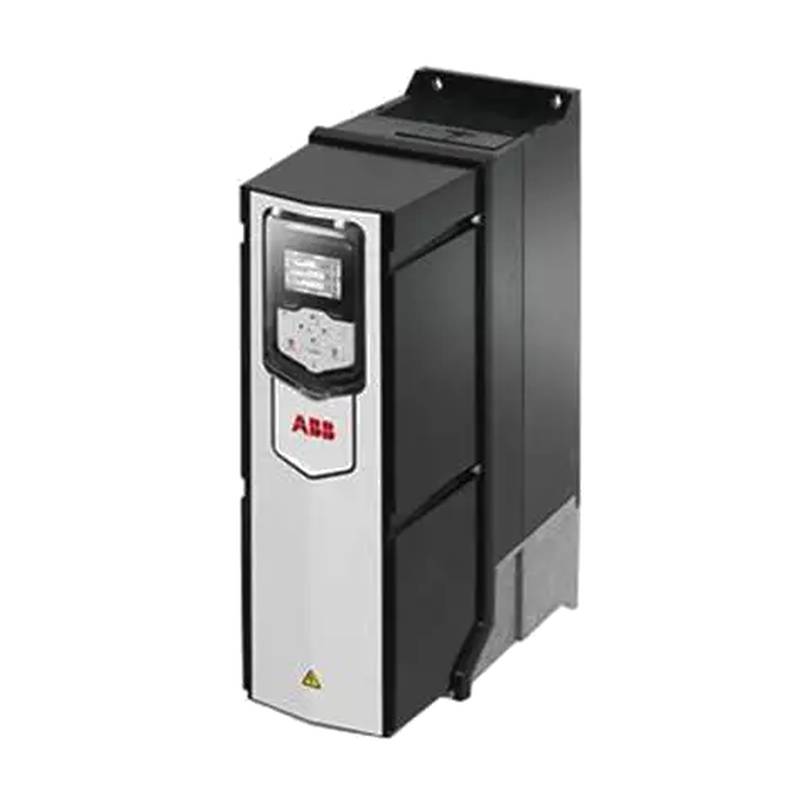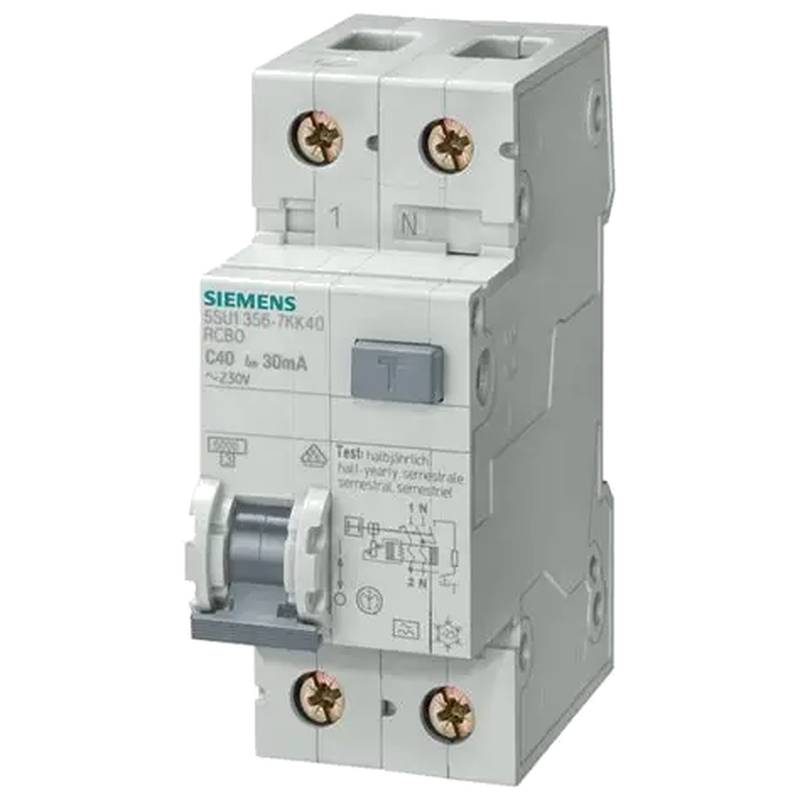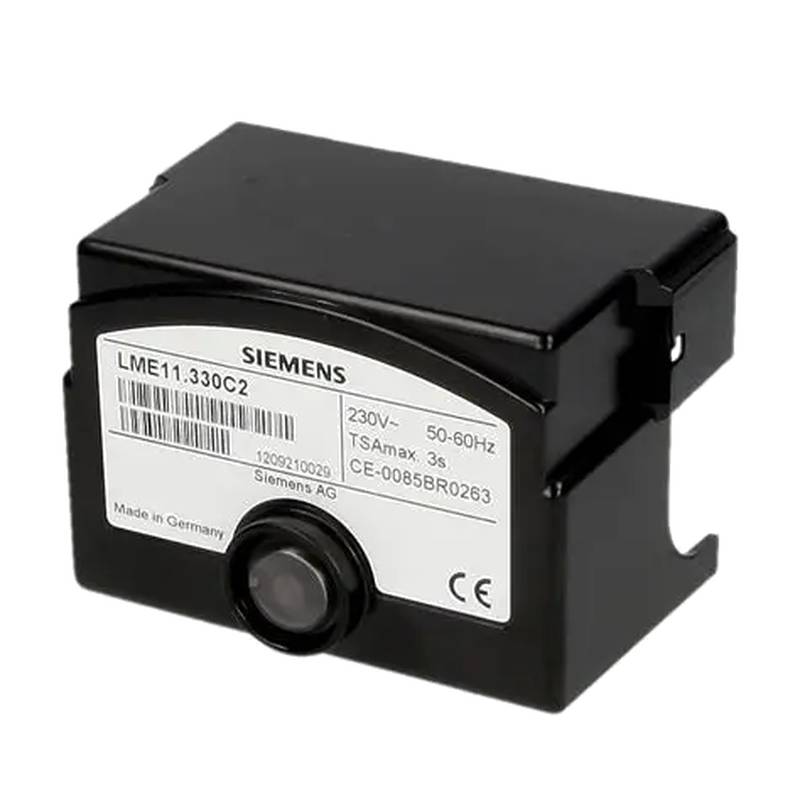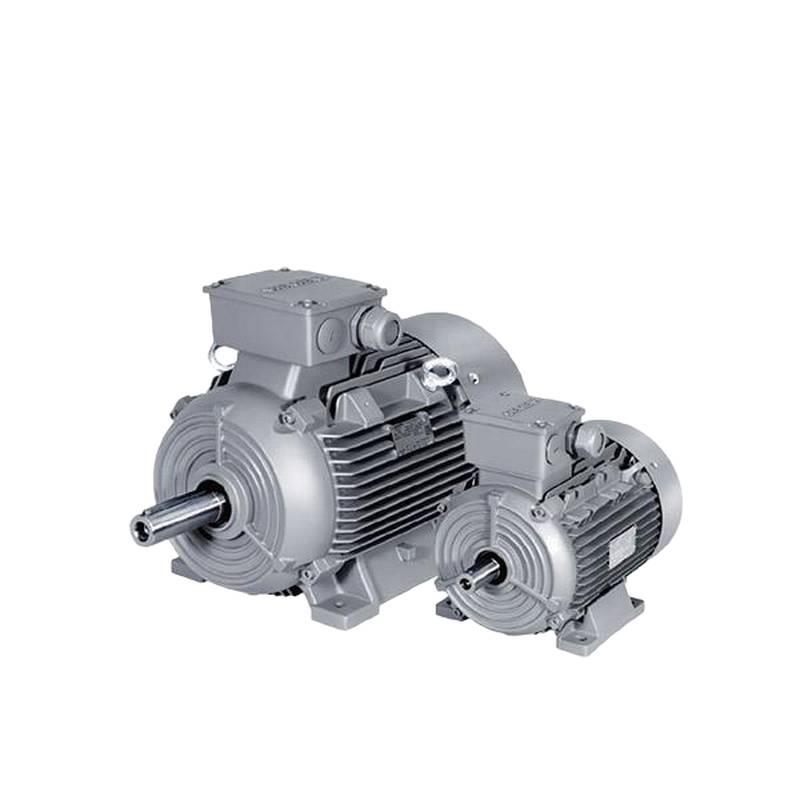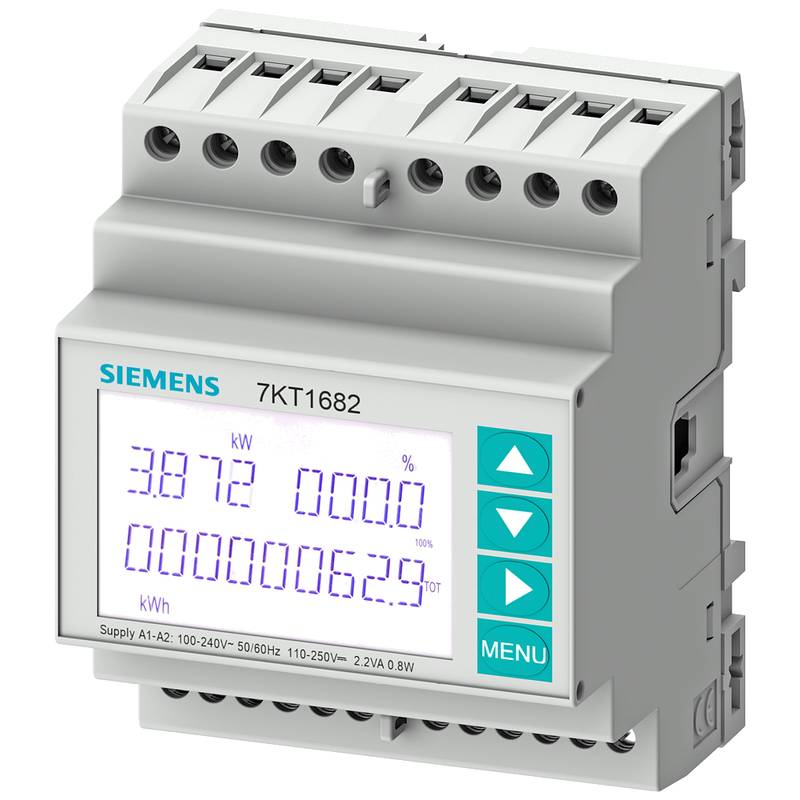
The Delta ASD-B3A-0721-P Intelligent Three Phase Servo Control System represents a significant advancement in high-precision motion control, offering a compelling blend of performance, versatility, and advanced features for demanding industrial automation tasks. This system distinguishes itself with a 3.1 kHz bandwidth, enabling rapid response and precise settling times, superior to previous generations. It supports 24-bit encoders for exceptional positional accuracy and accommodates motor speeds up to 6000 RPM with a 350% maximum torque capability. The integrated Safe Torque Off (STO) functionality, compliant with Safety Integrity Level 2 (SIL2), ensures enhanced operational safety. Furthermore, the Delta ASD-B3A-0721-P facilitates DC bus sharing, optimizing energy efficiency and system integration. Its compact design and compatibility with a range of Delta servo motors, including B2, B3, and A3 series, offer flexibility in system design and upgrade paths.
Product Specifications
| Feature | Specification |
| :------------------- | :-------------------------------------------------- |
| Model | ASD-B3A-0721-P |
| Series | ASDA-B3 Standard Delta Servo System |
| Rated Output Power | 750 W |
| Input Voltage | 220 VAC (Single-phase/Three-phase) |
| Output Current | 5.1 Arms (Continuous) |
| Instant Max Current | 16.4 Arms |
| Bandwidth | 3.1 kHz |
| Encoder Support | 24-bit Incremental and Absolute |
| Max Motor Speed | 6000 RPM |
| Max Torque | 350% |
| Communication | EtherCAT, Modbus, Analog, Pulse, PR Mode, STO |
| Safety Feature | Safe Torque Off (STO) SIL2 |
| DC Bus Sharing | Yes |
| Dimensions | Compact design (up to 20% smaller than B2) |
| Motor Compatibility | B3, B2, A3, A2 series motors |
| Control Features | Auto-tuning, Vibration Suppression, Gain Adjustment |
Core Features & Market Positioning
The Delta ASD-B3A-0721-P is strategically positioned as a premium solution for applications demanding ultra-precise motion control and high dynamic response. Its core advantage lies in the significantly enhanced bandwidth of 3.1 kHz, which directly translates to faster settling times and improved performance in high-speed positioning tasks. This places it ahead of many competitors that offer lower bandwidths. The 24-bit encoder resolution ensures unparalleled accuracy, crucial for industries like semiconductor manufacturing, electronics assembly, and advanced robotics. The inclusion of STO SIL2 as a standard feature underscores Delta's commitment to safety, providing a critical safety function that simplifies machine safety integration and reduces the need for external safety relays in many applications. Furthermore, the system's compatibility with a broad range of Delta servo motors, including previous generations like the B2 series, offers a clear upgrade path for existing installations, maximizing return on investment and minimizing integration hurdles. The DC bus sharing capability is another key differentiator, allowing multiple servo drives to share a common DC bus, thereby reducing the need for regenerative resistors and improving overall system efficiency.
Key Application Scenarios
The Delta ASD-B3A-0721-P servo control system excels in a variety of high-performance industrial applications where precision, speed, and reliability are paramount. It is ideally suited for:
Robotics and Automation: Enabling highly accurate and dynamic movements for robotic arms in assembly, pick-and-place, and welding operations. Machine Tools: Providing the precision required for CNC machining, grinding, and cutting applications, ensuring tight tolerances and excellent surface finish. Packaging Machinery: Facilitating high-speed, precise movements for filling, sealing, and labeling processes, boosting production throughput. Printing and Labeling: Delivering the accuracy needed for high-resolution printing and precise label placement in the graphics and packaging industries. Semiconductor Manufacturing: Meeting the stringent demands for ultra-precise positioning and movement in wafer handling and inspection equipment. Automated Test Equipment (ATE): Ensuring consistent and repeatable test procedures through precise actuator control. Material Handling Systems: Optimizing the speed and accuracy of automated guided vehicles (AGVs) and conveyor systems.
Practical System Integration Guidance
Integrating the Delta ASD-B3A-0721-P servo system requires careful attention to wiring, configuration, and parameterization. For optimal performance and safety, adhere to the following:
Wiring: Ensure all power and control wiring is performed according to the ASDA-B3 series user manual. Crucially, proper grounding is essential to prevent electrical noise and ensure safety; connect ground terminals to a Class-3 ground (resistance not exceeding 100Ω). Incorrect wiring, especially to the U, V, W motor terminals, can lead to severe damage or fire. The system supports both single-phase and three-phase 220 VAC input, providing flexibility in power source selection. Configuration: Utilize Delta's ASDA-Soft software for efficient system setup, tuning, and diagnostics. The software offers graphical configuration tools, auto-tuning functions, and vibration suppression capabilities, simplifying the commissioning process. Communication options like EtherCAT allow for high-speed, synchronized multi-axis control, reducing wiring complexity and improving system responsiveness. Parameterization: Before initial operation, meticulously adjust drive parameters to match the mechanical system's characteristics. This includes settings for motion profiles, feedback loops, and motor data. The auto-tuning feature can significantly assist in optimizing PID loop gains and other control parameters, ensuring smooth and precise operation.
Operation and Risk Mitigation
Safe and efficient operation of the Delta ASD-B3A-0721-P servo system hinges on understanding its operational capabilities and potential hazards. The system is designed with multiple safeguards. The embedded Safe Torque Off (STO) function is a critical safety feature that ensures the motor cannot generate torque, preventing unexpected movement during maintenance or emergency situations. When using STO, always ensure it is integrated with appropriate safety relays and complies with relevant safety standards (IEC/EN 61800-5-2).
Troubleshooting typically involves checking fault codes displayed on the drive or via software diagnostics. Common issues can arise from incorrect wiring, inadequate grounding, improper parameter settings, or environmental factors such as excessive temperature or vibration. Always consult the ASDA-B3 User Manual for a comprehensive list of fault codes and their corresponding resolutions. Environmental conditions should comply with the minimum requirements for UL50 Type 1 enclosures when installed in control cabinets. Avoid operating the system in potentially explosive environments or near corrosive/flammable gases or liquids.
Scalability & Long-Term Value
The Delta ASD-B3A-0721-P servo control system offers significant long-term value through its inherent scalability and backward compatibility. It is designed to integrate seamlessly with Delta's wider ecosystem of automation components, including PLC controllers, HMIs, and industrial fieldbus solutions. The system's compatibility with previous Delta servo motor generations (B2, A3, and A2 series) makes it an excellent choice for upgrading existing machinery, allowing for performance enhancements without a complete system overhaul.
For future-proofing, the ASDA-B3 series supports advanced communication protocols like EtherCAT, facilitating integration into IIoT (Industrial Internet of Things) frameworks and enabling sophisticated data acquisition, remote monitoring, and predictive maintenance strategies. The system's modular design and Delta's ongoing development in automation technology ensure that users can adapt and expand their systems to meet evolving production demands and technological advancements.
Frequently Asked Questions (FAQs)
Q1: What are the primary advantages of the Delta ASD-B3A-0721-P servo system?
The ASD-B3A-0721-P offers a superior 3.1 kHz bandwidth for rapid response and precise settling. It boasts 24-bit encoder resolution for exceptional positional accuracy. The integrated STO SIL2 safety function enhances operational safety significantly.
It also features DC bus sharing for improved energy efficiency and system integration. Its compact design and compatibility with various Delta motor series maximize flexibility and upgrade potential.
This servo system is ideal for high-demand applications like robotics, CNC machinery, and automated manufacturing where precision is critical.
Q2: How does the Delta ASD-B3A-0721-P handle safety?
The system includes an embedded Safe Torque Off (STO) function, rated SIL2. This feature reliably prevents the servo motor from generating torque. It ensures machine safety during maintenance or emergencies.
STO compliance adheres to standards like IEC/EN 61800-5-2. It simplifies safety circuit design by reducing external safety component needs.
Always integrate STO with appropriate safety relays for full compliance and effective risk mitigation.
Q3: What motor types are compatible with the ASD-B3A-0721-P?
This servo drive is compatible with Delta's B3, B2, A3, and A2 series servo motors. This broad compatibility aids in system upgrades and replacements.
It allows users to leverage existing B2 motors while benefiting from the advanced performance of the B3 drive. Motor cables may require modification for older motor series.
Ensure proper matching of the drive's power rating to the selected motor for optimal performance and to prevent damage.
Q4: Can the Delta ASD-B3A-0721-P be used with a single-phase power supply?
Yes, the ASD-B3A-0721-P is designed to accept both single-phase and three-phase 220 VAC input. This offers significant flexibility for installation in diverse facility power environments.
This dual-voltage capability allows users to utilize existing single-phase infrastructure where three-phase power may not be readily available. It simplifies power supply planning for many applications.
Always confirm the specific model variant and local electrical codes before connecting to a single-phase power source.
Q5: What are the key technical specifications of the ASD-B3A-0721-P?
It features a 750W rated output power and 5.1 Arms continuous output current. The bandwidth is 3.1 kHz, and it supports 6000 RPM motor speeds.
The system uses 24-bit encoders for high precision and offers up to 350% maximum torque. It operates on 220 VAC single or three-phase power.
It supports various communication protocols including EtherCAT, Modbus, analog, and pulse inputs.
Q6: How is the Delta ASD-B3A-0721-P integrated into a control system?
Integration is typically achieved via digital I/O, analog inputs, or high-speed communication protocols like EtherCAT or Modbus. Delta's ASDA-Soft software is used for configuration and commissioning.
The drive supports PR (Program) mode and PT (Pulse Train) mode for precise motion control based on external commands. It can also be controlled via analog voltage.
Proper wiring of power, control, and communication signals according to the manual is crucial for successful integration.
Q7: What are the benefits of DC bus sharing in this servo system?
DC bus sharing allows multiple servo drives to connect to a common DC bus. This reduces the need for individual regenerative resistors for each drive.
It improves overall system energy efficiency by allowing energy regenerated by one drive to be used by another. This is particularly beneficial in multi-axis applications.
Implementing DC bus sharing requires careful consideration of the total power requirements and regenerative capacity of the system.
Q8: How does auto-tuning improve system performance?
Auto-tuning automatically adjusts PID control loop parameters for optimal performance. It fine-tunes gain settings for stability and responsiveness.
This function simplifies setup by minimizing manual parameter adjustments, especially for complex mechanical loads. It ensures the servo system accurately tracks motion commands.
Auto-tuning helps achieve faster settling times and reduces vibration, leading to improved overall machine efficiency and product quality.
Q9: What are common troubleshooting steps for the ASD-B3A-0721-P?
Begin by checking the drive's fault code display for error identification. Verify all power and control wiring connections are secure and correct.
Ensure proper grounding is established and that the operating environment meets specified temperature and humidity limits. Review parameter settings against mechanical system requirements.
Consult the ASDA-B3 User Manual for detailed explanations of fault codes and troubleshooting procedures.
Q10: Is the Delta ASD-B3A-0721-P backward compatible with older Delta servo motors?
Yes, the ASDA-B3 series drives, including the ASD-B3A-0721-P, are compatible with older Delta servo motors like the B2 series. This offers a seamless upgrade path for existing installations.
Users can often upgrade their drives to the newer B3 system while retaining their current B2 motors, saving costs and simplifying implementation. Minor modifications to motor cables might be necessary for some older motor types.
Always refer to Delta's documentation for specific compatibility details and any required modifications when mixing drive and motor generations.














